Two high-profile scientific events provided a platform for presenting the ongoing doctoral research carried out by IPS’ PhD fellow, Sílvia Bernardo. The presentations underscored the importance of recognising individuals in situations of special vulnerability in prison—particularly older women—while calling for transformative change in justice systems.
Since the turn of the century, prisons have undergone significant demographic shifts. Originally designed for young men, prison institutions now increasingly house older individuals—some ageing behind bars due to long sentences, others entering and exiting the system over time, and some being convicted later in life. The once-minority population of older people in prison is steadily growing.
In this context, individuals aged 50 and above are considered “older”, recognising that imprisonment accelerates the ageing process. Across the member states of the Council of Europe, people in this age group now represent approximately 18% of the prison population—amounting to at least 150,000 individuals. Of these, an estimated 7,800 are women. While official prison statistics often lack gender-disaggregated data, this figure is inferred from the known 6% share of female prisoners serving custodial sentences.
Older women in prison, as a minority within a minority, face unique and often overlooked challenges. Their intersecting identities—as women and as older individuals—are rarely reflected in prison policies or practices. This oversight results in environments that fail to meet their specific health, psychological, and social needs.
Typically, older incarcerated women experience declining physical and mental health, often burdened with multiple chronic conditions. They carry complex emotional histories shaped by trauma, and their incarceration disrupts longstanding caregiving roles, deepening their sense of loss and disconnection. Reports consistently reveal feelings of dissatisfaction, frustration, and isolation among this population.
Despite individual differences, the literature points to a recurring theme: the prison system remains fundamentally ill-equipped to support older women. Menopause-related discomfort and other age-related health issues frequently go unaddressed, contributing to further marginalisation within the carceral environment.
At the intersection of age and gender: Rethinking prison for older women
This critical reality was the focus of the presentation titled “Women 50+ in the Prison System: Vulnerabilities, Invisibilities and Challenges at the Age–Gender Intersection”, delivered at the XIII Congress of the Portuguese Sociological Association. The presentation, co-authored by Sílvia Bernardo and supervised by Amélia Augusto (University of Beira Interior) and Pedro da Neves (Innovative Prison Systems), was selected by the Thematic Section on Sociology of Law and Justice. It featured in the session Older Adults and Minors in the Justice System: Are All Precautions Few?, held in hybrid format—online and in person—at the University of the Azores, Ponta Delgada, between 8 and 11 July 2025. Check the Programme of the XIII Congress of the Portuguese Sociological Association.
The session drew on a scoping review of the past decade’s literature, focusing on Council of Europe member states. Concluding that institutional responses to older women in prison are scarce and fragmented, the research calls for a rethinking of policies and practices that genuinely acknowledge and address their specific needs. It advocates for a shift from marginalisation to inclusion, informed by intersectional, human rights-based, and dignity-centred approaches.
The presentation resonated strongly with the overarching theme of the Congress—Democracies to the Test: Risks and Uncertainties. Indeed, achieving the principles of equity and inclusion central to democratic societies requires both further research and concrete action. Evidence-based policymaking must address the intersecting vulnerabilities of this neglected prison population.

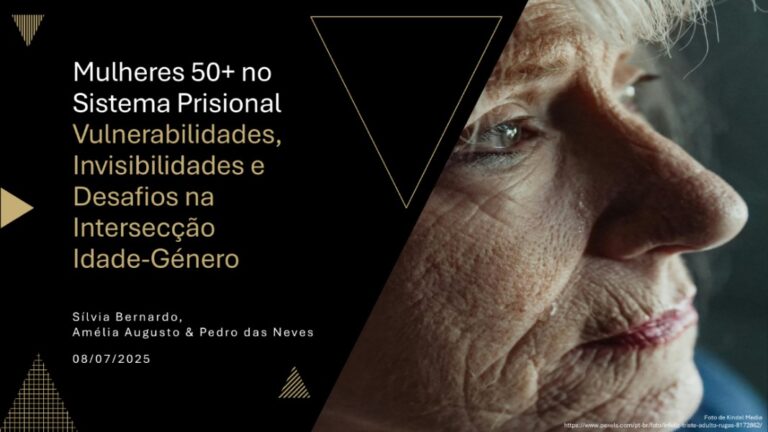
Bringing prison realities to Gerontology: Highlighting the intersection of ageing and incarceration
The conversation around ageing and justice extended to the international stage at the 5th European Conference on Aging & Gerontology (EGen 2025), held between July 10 and 14, 2025 in London and online.
Sílvia Bernardo delivered the talk “Older Women in Prison: Navigating Vulnerability at the Intersection of Age and Gender” within the broader live-streamed session “Cognitive and Physical Well-being,”. The communication offered a unique contribution by connecting carceral realities with gerontological concerns—standing out as the only presentation at the conference to address imprisonment.
The presentation shared insights on how older women in prison often face compounded disadvantages, navigating an environment that is not only ill-suited to the ageing process but also unresponsive to gendered health and psychosocial needs. Drawing on findings from the abovementioned scoping review, the talk highlighted that older women in custody frequently endure unmet medical needs, limited mobility adaptations, psychological distress, and social disconnection—all of which have direct implications for both cognitive and physical well-being.
By placing the prison experience within the framework of gerontology, the talk invited participants to reflect on how penal institutions—beyond traditional healthcare and care settings—must adapt to demographic shifts. It also questioned the preparedness of prison to ensure dignified ageing and promote healthy longevity.
The inclusion of this topic at this Conference marks an important step toward breaking the invisibility of imprisoned older women in mainstream ageing discourses. The presentation received significant interest from attendees, including students from around the world, signalling growing recognition of the need for more inclusive and intersectional perspectives on ageing across disciplines.
Together with the communication delivered at the XIII Congress of the Portuguese Sociological Association, this contribution reinforces the urgency of bringing age and gender to the forefront of prison transformation efforts and discussions. It also exemplifies the role of scientific dissemination in shaping more just, inclusive, and evidence-informed responses for particularly vulnerable minorities, regardless of the setting in which they grow old.
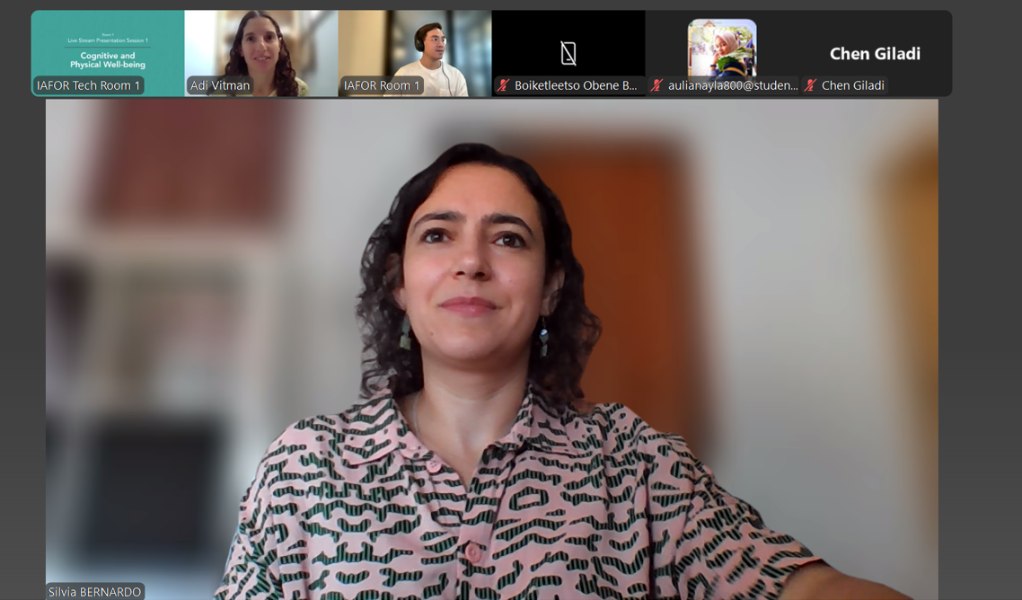
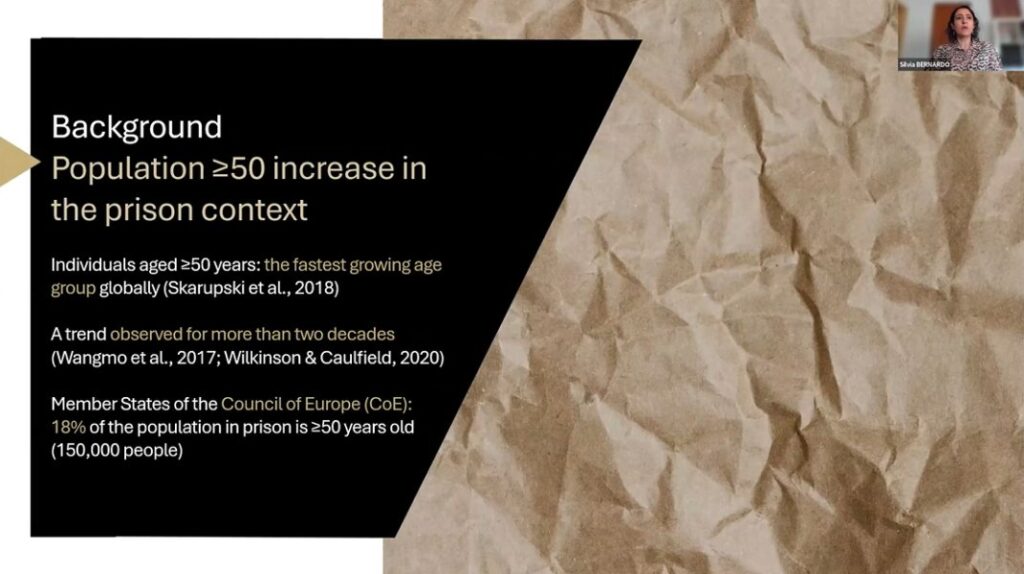
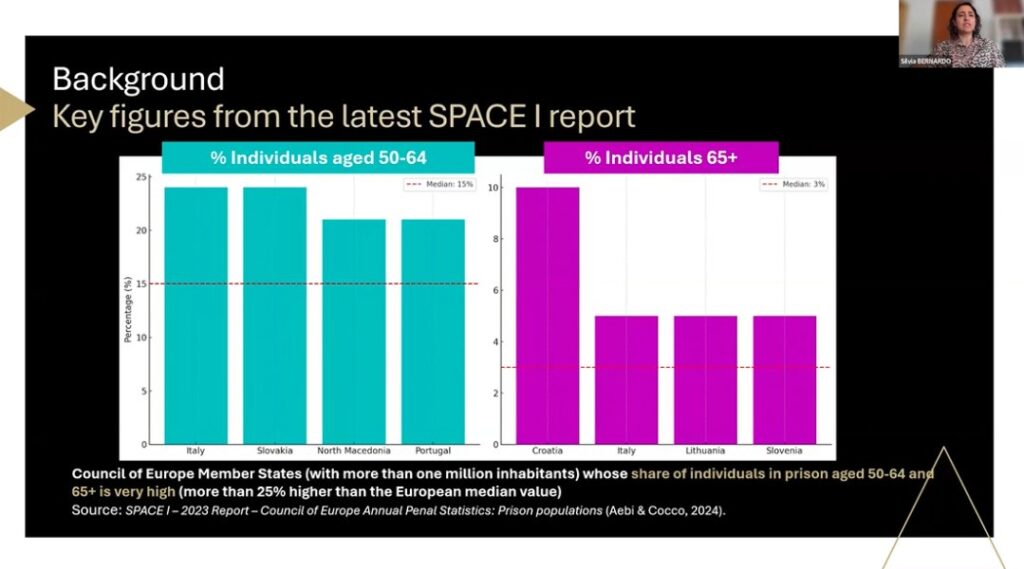
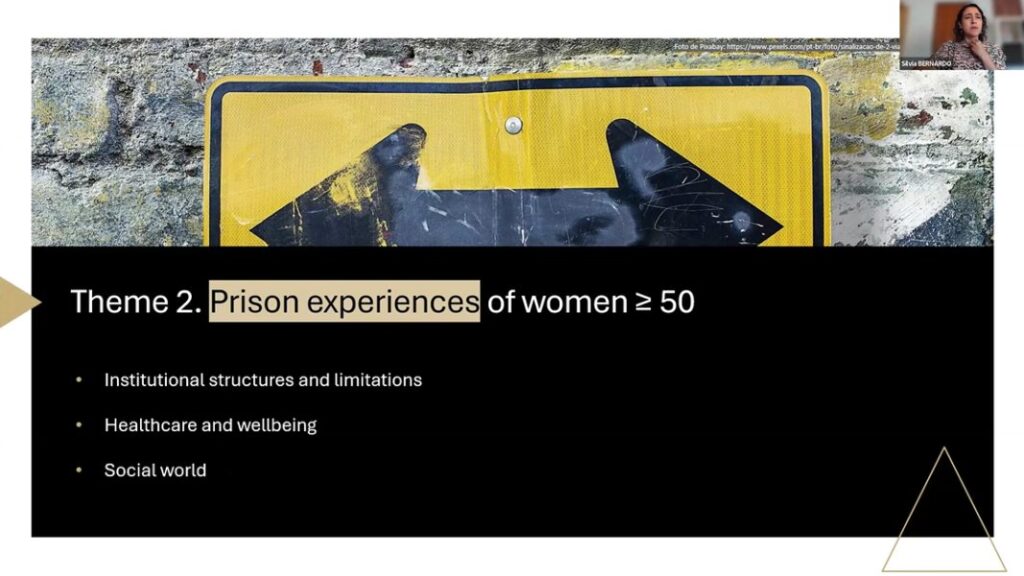
Both presentations were developed as part of the doctoral research project titled “‘Elderly’ Women in Prison in Portugal: What Reality and Treatment for This Minority in the Prison System?”. This research is funded by the Foundation for Science and Technology, I.P. (FCT) through the State Budget of Portugal, under grant number 2024.00964.BDANA. The project is jointly supervised by one supervisor from each host institution: the University of Beira Interior and IPS_Innovative Prison Systems.
Related news

Enhancing child-friendly juvenile correctional training across Europe: IPS presents key findings at CRS 2025
Read More »
Child-friendly justice in practice: An online training for professionals working with convicted children
Read More »
Unlocking child-friendly Justice: The hidden key to reform lies in staff training policies
Read More »





